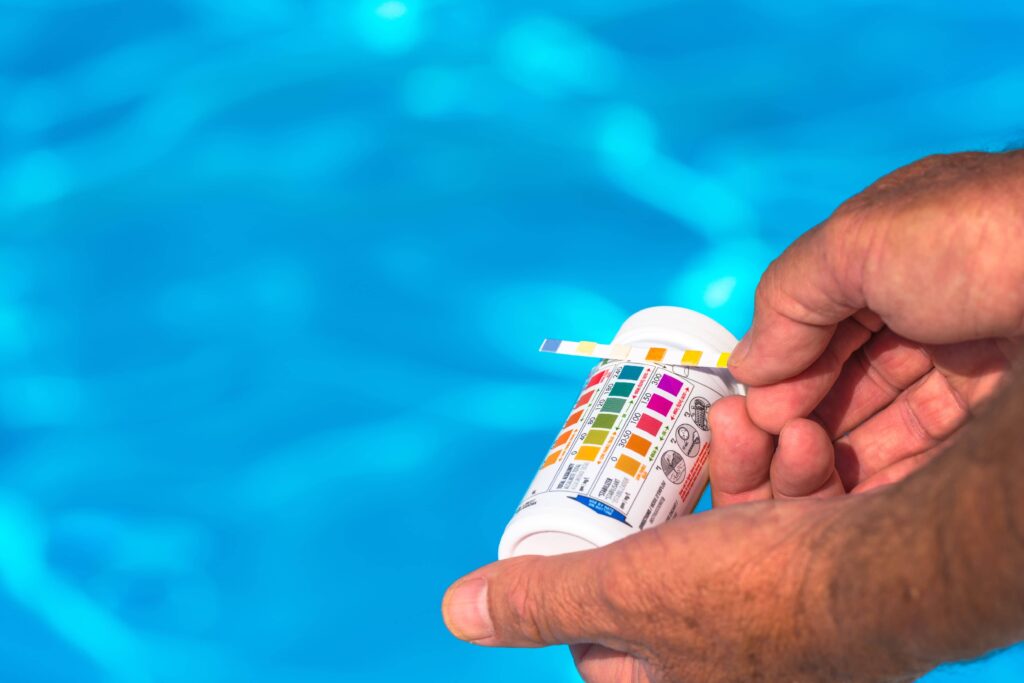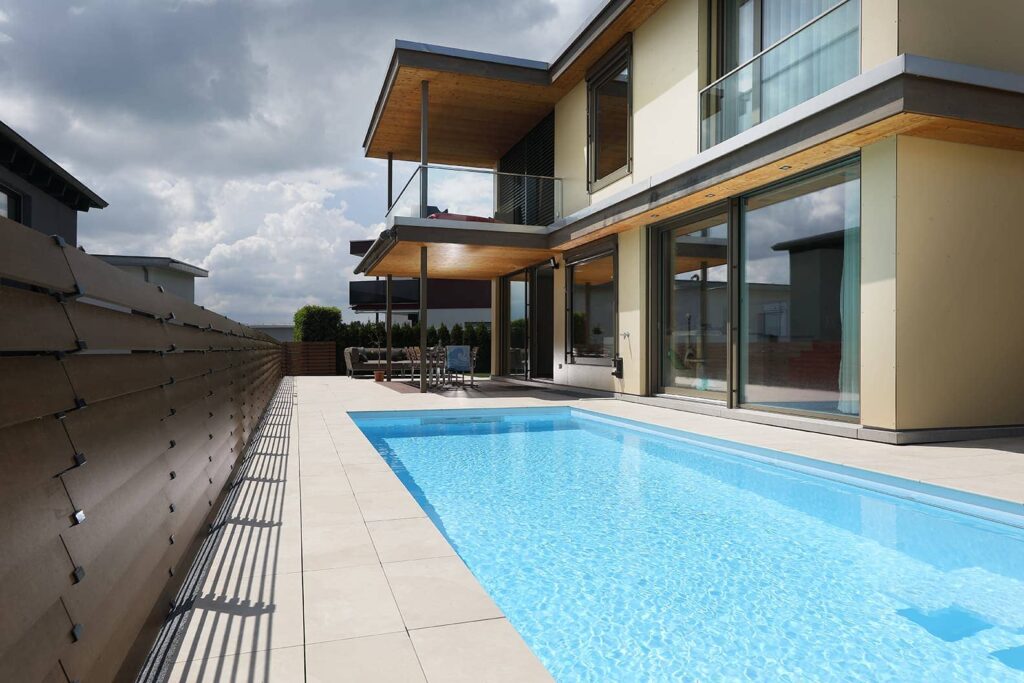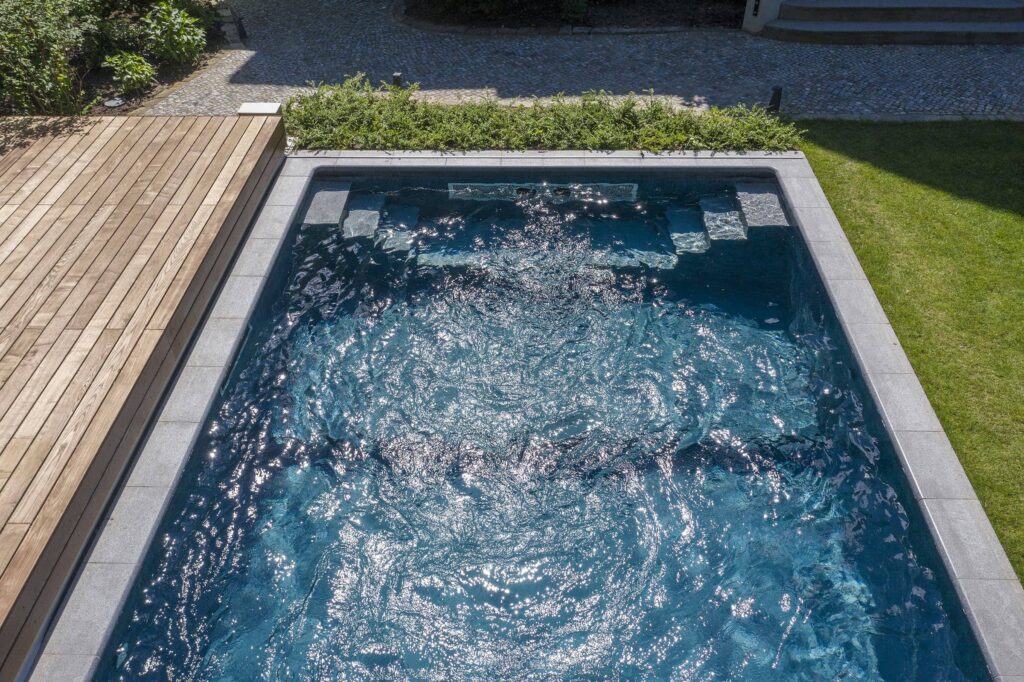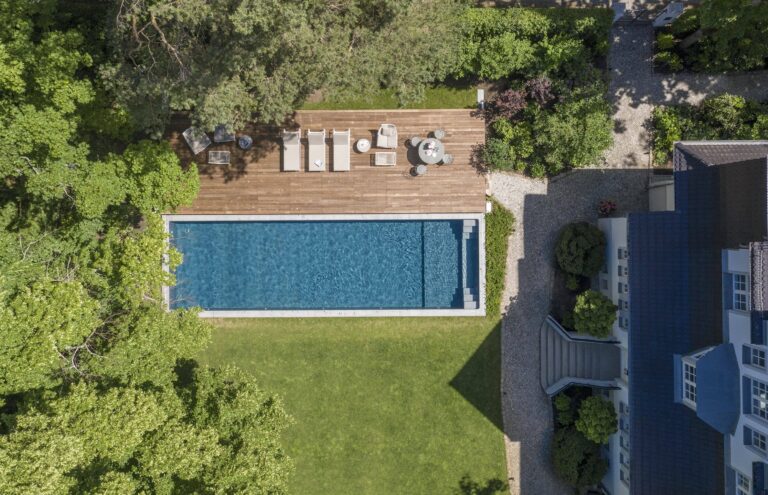
What test methods are available?
There are three main options for checking water quality: testing strips, electronic pool testers or professional analysis by your specialist dealer. Test strips usually detect the concentration of several different chemicals in the water. They are dipped in the pool and then held still in the air for a while, without shaking off the water running down them. The colour change is then compared against a scale on the test strip packaging.
Electronic pool testers either evaluate the test strips automatically or determine water quality via a built-in sensor or via a sample, to which a tablet is added.
All test methods should at least be able to measure the pH value and chlorine concentration of the pool water. Water hardness, active oxygen and algaecides can often also be detected in this way.
If there are problems with the dosing of pool care products, and especially at the beginning of the season when the pool is first filled up, a professional water analysis by a specialist swimming pool dealer is highly recommended.




